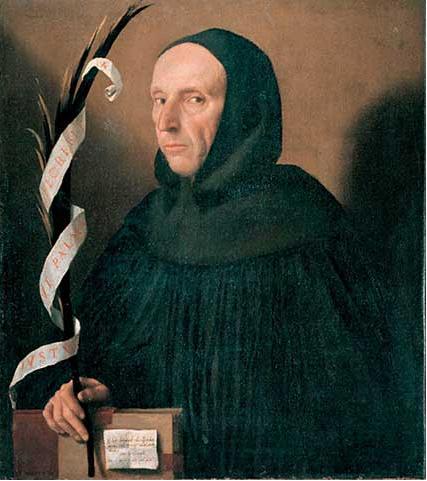Girolamo Savonarola was the leader of a revolution in
the Italian city-state of Florence in 1494. Just four years later, the fiery
Dominican preacher was arrested and executed for heresy. He had already been
excommunicated by the Borgia pope, Alexander VI. Later, both the Protestant
Reformation and the Italian Risorgimento saw him as a precursor. Others have
seen him as a fanatic, due to his campaigns against real or perceived vices in
Florence, including mass burnings of Renaissance artwork and expulsions of
homosexuals. “Apologetic Writings” contains a number of Latin texts by
Savonarola, plus English translations of the same. Eight letters to Alexander VI
are included, but the major piece is “Dialogue on the Truth of Prophecy”,
composed in 1497. Savonarola claimed to be a true prophet, and in this text
attempts to explain and defend his prophetic ministry. While the editors have
appended lengthy notes to the dialogue, they never place it in a broader
context. As an interested reader, I would like to know whether Fra Girolamo's
arguments were common among purported Christian prophets, or whether they were
unique. Did anyone take the time refuting his arguments, and if so, how?
Savonarola claims that he is absolutely sure of the veracity of his prophecies, in the same way as all people with normal vision are absolutely sure that a white lily really is white. The truth of the proposition “the lily is white” can't be demonstrated by rationalist philosophical argument, but is immediately given in experience. In the same way, God can bestow higher kinds of vision on the believer. By the light of faith, we can know the truths of revelation, such as the Trinity or the incarnation. By the light of prophecy, the prophet can know the truth of futuristic visions, and be sure that these visions really come from God, rather than the Devil. Interestingly, Savonarola admits that prophets aren't infallible. Just as our ordinary vision can be mistaken (perhaps seeing a white lily as yellow), so can prophetic vision. Thus, a prophet can err concerning the timing of the fulfillment of his prophecy. However, Savonarola then brushes aside this (surely important) objection by saying that God will correct the prophet, making sure that he doesn't err after all. Savonarola believes that his prophecies are true and really come from God, since he has lived an ascetic, moral and upright life, and earnestly contended for what is God's. His wisdom has increased over the years, until he finally received illumination. This divine illumination (which includes the gift of prophecy) have made him understand the Holy Scriptures better, and also imparted knowledge of politics and economics, which he didn't posses before. Surely, his visions cannot therefore come from the Devil or demons!
But how can an outside observer trust Savonarola? He admits that the truth of his prophecies cannot be established by reason alone, since (obviously) they deal with future events which nobody can observe. An outsider must judge Savonarola on the basis of “by their fruits shall you know them”. The Dominican order has expanded in Florence, its rules have become stricter, and a revival is on its way in the previously so sinful city. Savonarola also attempts to prove some of his points scripturally, for instance by arguing that the Bible talks about the need for Church reform, or that the Anti-Christ is a future personage (apparently, many Christians at the time regarded Muhammad, who died 800 years previously, as the Anti-Christ). Savonarola's opponents used similar tactics, except in the other direction. They pointed out that Florence was struck by the plague during his de facto tenure as city leader. Savonarola's response is that God sent the plague to test his faithful, and that he predicted it would happen several years in advance.
Although the back matter of “Apologetic Writings” promises us as fascinating sneak peek into the “mind of a religious fanatic”, Fra Girolamo actually comes across as relatively reasonable in his dialogue on prophecy. Many of his arguments are rather dry and abstract, and based on Aristotelian metaphysics! The dialogue contains a lot of scholastic hair-splitting about God's will imparting form on matter as part of the true telos of an object, etc. Clearly, the dialogue wasn't intended to rouse the masses at the Piazza della Signoria! I haven't read any of Savonarola's prophecies, but the Dominican father clearly had a more intellectual side, too.
“Apologetic Writings” isn't a book for the general reader, but if you are seriously interested in the complex character of Girolamo Savonarola, or perhaps in the epistemological side of Christian prophecy, this might be an interesting read.

No comments:
Post a Comment